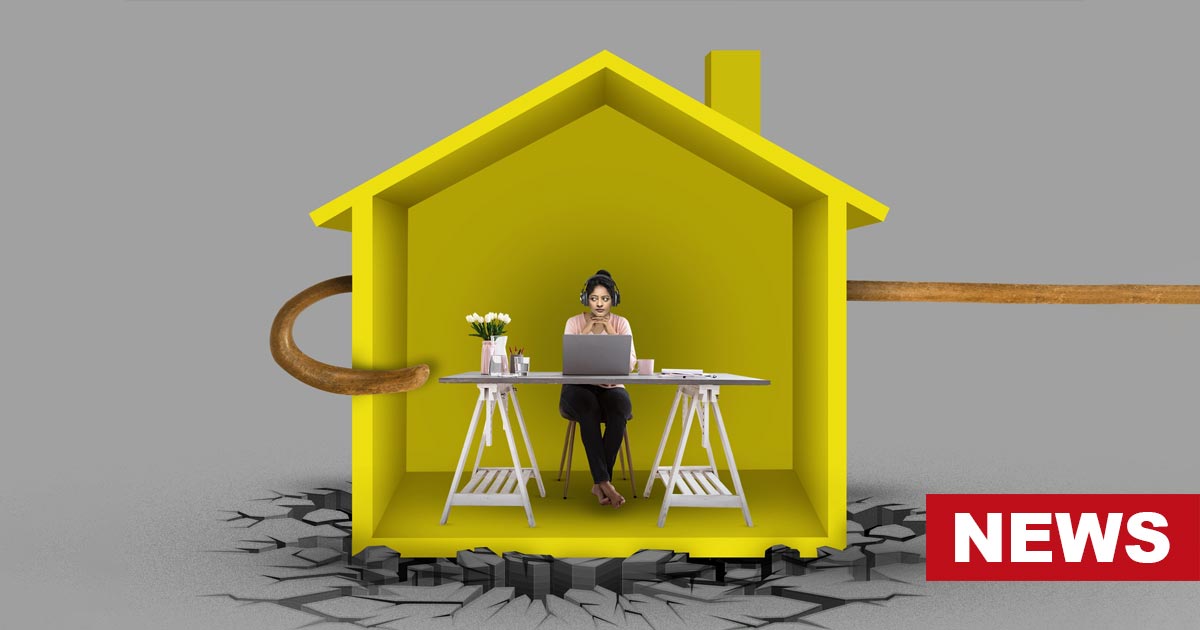- The return to office movement has unintentionally led to a mental health crisis in office-goers across all generations.
- Urgent action is required to address declining mental health levels, disengagement, and the reluctance to seek support.
As the world eagerly embraces the return to office movement, a dark and unforeseen side effect is emerging: a mental health crisis in office-goers. While the return to the workplace was seen as a solution to the challenges of remote work and a boost to the struggling economy, it is now revealing alarming trends that demand attention.
Recent findings from The Conference Board’s survey in the US have raised alarming concerns about declining mental health levels among workers, highlighting the urgent need for action.
The Invisible Struggle: Declining Mental Health
According to The Conference Board study, 34% of workers acknowledged experiencing lower mental health levels after the return to the office. Even more disconcerting is the fact that 37% reported a decrease in their level of engagement and sense of belonging, despite working harder than ever.
Millennials are particularly affected, with 43% experiencing decreased engagement, higher than their Gen X and Baby Boomer counterparts. The emotional disconnection between employees and their organization’s mission and purpose becomes apparent, reminiscent of an artist feeling disconnected from their once-vibrant inspiration.
Blaming The Return To Office Movement
The return to office is being implicated as a key factor in the declining mental health of employees. Surprisingly, 52% of study participants expressed a preference for flexible or hybrid work schedules to address their mental health struggles.
Additionally, 55% believed that the ability to take guilt-free “no work” days off would significantly contribute to their mental well-being.
The Workload-Mental Health Connection
The relationship between the mental health crisis in office-goers and the demanding workload exacerbates the concerns. Among workers reporting decreased mental health, 48% work more than 50 hours per week. Millennials, in particular, feel that their workload negatively affects their mental health, with 50% expressing this sentiment.
Factors such as poor workplace communication, work-life imbalance, and excessive time spent in meetings further contribute to these detrimental effects. The existence of a toxic work culture adds to the toll, with 26% of workers asserting that it adversely impacts their mental health.
The Declining Trend of Mental Health Support Programs
Unfortunately, mental health and well-being support programs for workers who experience the return to office blues appear to be decreasing in availability.
Within a year, emotional well-being programs have dropped from 88% to 62%, financial well-being initiatives from 76% to 52%, and physical well-being programs from 74% to 54%. Moreover, despite their availability, these programs are underutilized, with only 22% of those with access taking advantage of emotional well-being programs.
Reluctance to Discuss Mental Health
The study also revealed that 38% of employees who return to office feel uncomfortable discussing their mental health with their managers, leading to the metaphorical act of walking on eggshells. Consequently, some employees resort to clandestine methods to address their mental health struggles.
Thirteen percent take unofficial mental health days, while 19% opt for sick days, and 18% put on a brave face and continue working despite their internal battles. The reluctance to openly discuss mental health issues stems from an empathy gap, where managers who have never experienced such challenges find it difficult to understand and support their employees effectively.
Cognitive Biases: Unseen Influences
Cognitive biases play a significant role in workplace dynamics. The status quo bias leads to resistance against change, often resulting in the perpetuation of harmful traditional work arrangements.
In this case, the organizational reluctance to adapt to flexible work arrangements and prioritize mental health stems from a preference for the familiar. Additionally, the empathy gap contributes to the misunderstanding of employees’ mental health struggles after the return to office, hindering the development of effective support programs that cater to their needs.
The Way Forward: A Healthier Work Environment
To address the escalating mental health crisis in office-goers, employers have an opportunity to reshape workplace norms, embrace flexibility, and prioritize mental health. By creating a healthier work environment, companies can retain diverse talent that reflects the richness of society.
Flexible work arrangements and mental health awareness should be at the core of this transformation. It is crucial to recognize that a healthy mind is a valuable asset that directly contributes to overall productivity and well-being.




























